Graham falsely claims all nine justices signed Roberts's letter expressing ethics hearing "concerns"
This is just not true; all nine justices signed a separate ethics statement that did not address the hearing. Graham even questioned the witnesses based on his false premise.
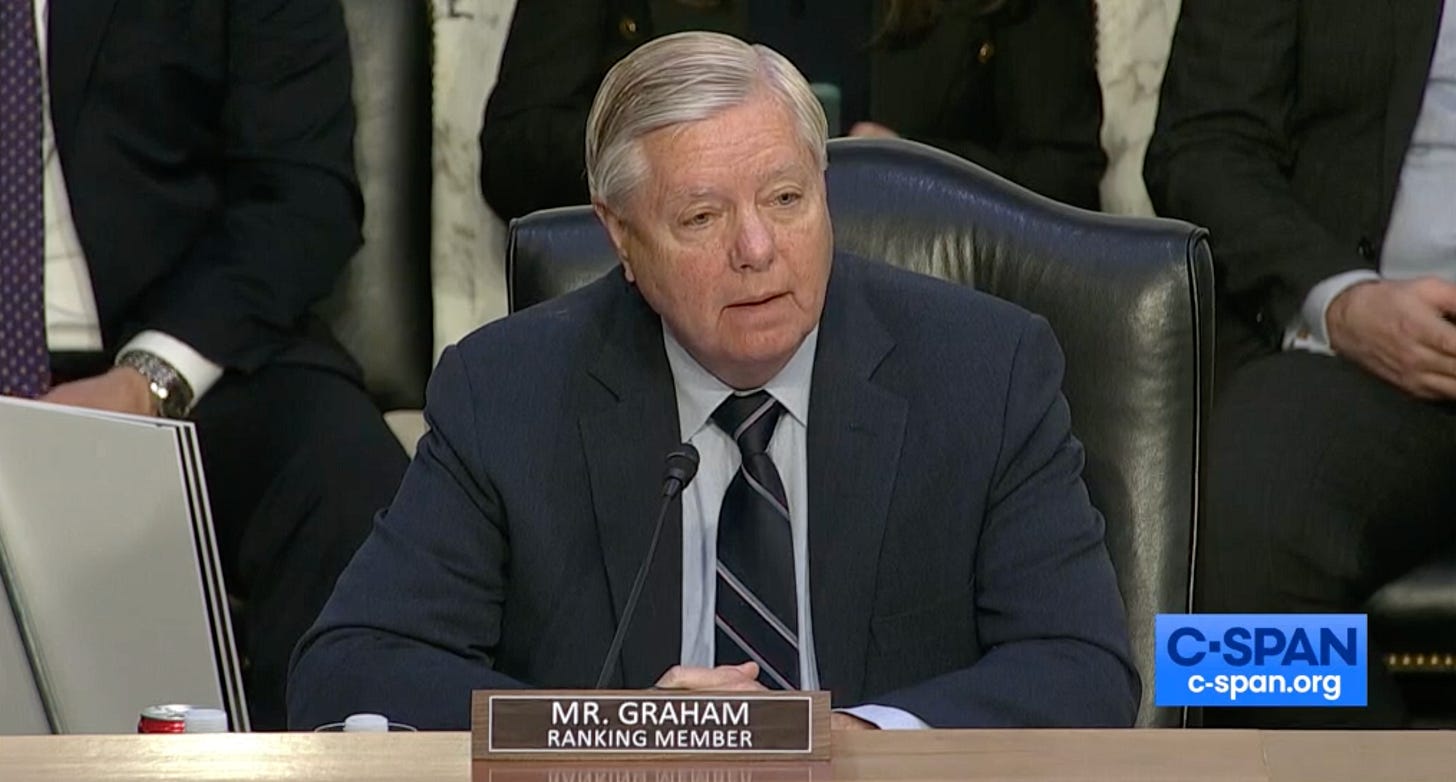
Sen. Lindsey Graham falsely claimed multiple times on Tuesday that all nine Supreme Court justices signed on to Chief Justice John Roberts’s letter declining Senate Judiciary Committee Chair Dick Durbin’s invitation to attend the committee’s hearing on Supreme Court ethics reforms.
Building on that false premise, Graham later claimed, “I just want people to understand, the court as a whole has a problem with this, whether they’re right or wrong.”
Watch the clip at C-SPAN here.
All nine justices signed on to a Statement on Ethics Principles and Practices, which was appended to Roberts’s letter. They did not sign on to Roberts’s letter.
It was in Roberts’s letter, not in the joint statement, that “separation of powers concerns” were raised and “judicial independence” was claimed as a justification for not appearing.
This is a substantive distinction. The joint statement is a statement of current practice. It is not the misuse of claims about separation of powers and judicial independence as an excuse for skipping Tuesday’s hearing.
That is the Roberts letter.
Note that Graham was copied on the letter.
But that did not stop Graham, in his opening statement, from inaccurately describing this, saying that “The letter that was received by the committee was not just signed by [Chief] Justice Roberts, it was signed by all of the judges. All of them have the same concern, not just one.”
Watch the clip at C-SPAN here.
Neither phrase — “separation of powers” or “judicial independence” — even appears in the joint statement, which is, for the most part, a recitation of general principles expressed by members of the court in the past.
Much of the joint statement repeats substantial elements of Roberts’s 2011 end-of-year report, which focused on Supreme Court ethics and which I discussed recently. In fact, where they differ, it is often where Roberts, in 2011, leaned into language suggesting such separation of powers concerns.
In his 2011 report, after noting that the Code of Conduct only applies to lower court judges, he wrote, “That reflects a fundamental difference between the Supreme Court and the other federal courts.” Later, he wrote of financial reporting and gift limits, “The Court has never addressed whether Congress may impose those requirements on the Supreme Court.”
The joint statement does not include such language.
The joint statement was about how the justices currently handle ethics questions. It was not a statement about Tuesday’s hearing or about legislative proposals regarding Supreme Court ethics reform.
In raising the issue with this false premise as he did, Graham also appeared to have confused the witnesses — at least three of whom responded affirmatively when asked if they were “aware” that Roberts’s letter declining the invitation was signed by all nine justices. (See the C-SPAN clip.) Which, again, it was not.
Only John Roberts signed that letter.
Retired U.S. District Judge Jeremy Fogel, also the former director of the Federal Judicial Center, specifically responded to questions from Graham as if discussing the joint statement. (Again, see the C-SPAN clip.)
By claiming that all nine justices signed on to Roberts’s letter and had a “problem” with Tuesday’s hearing, Graham was presenting a false reality. He was suggesting that the court “as a whole” is united against such a hearing. There is no basis for this claim. Particularly in a hearing about ethics, that is troubling.
What’s more, Graham should not have been allowed to do so — especially in terms of asking questions of witnesses based on that false premise — without correction from the Democrats on the committee at the time.
It was only three hours after Graham’s opening statement that Durbin issued a brief “clarification” at the very end of the hearing, saying that Roberts “responded directly to” him. “The other justices signed on to this ethics statement that was accompanying the response,” Durbin said, adding that those other justices did not specifically decline the invitation to attend.
The witnesses had no chance to respond to Durbin’s comment, and the hearing came to a close minutes later with Graham saying nothing in response to Durbin’s clarification.
Graham had already left the hearing.



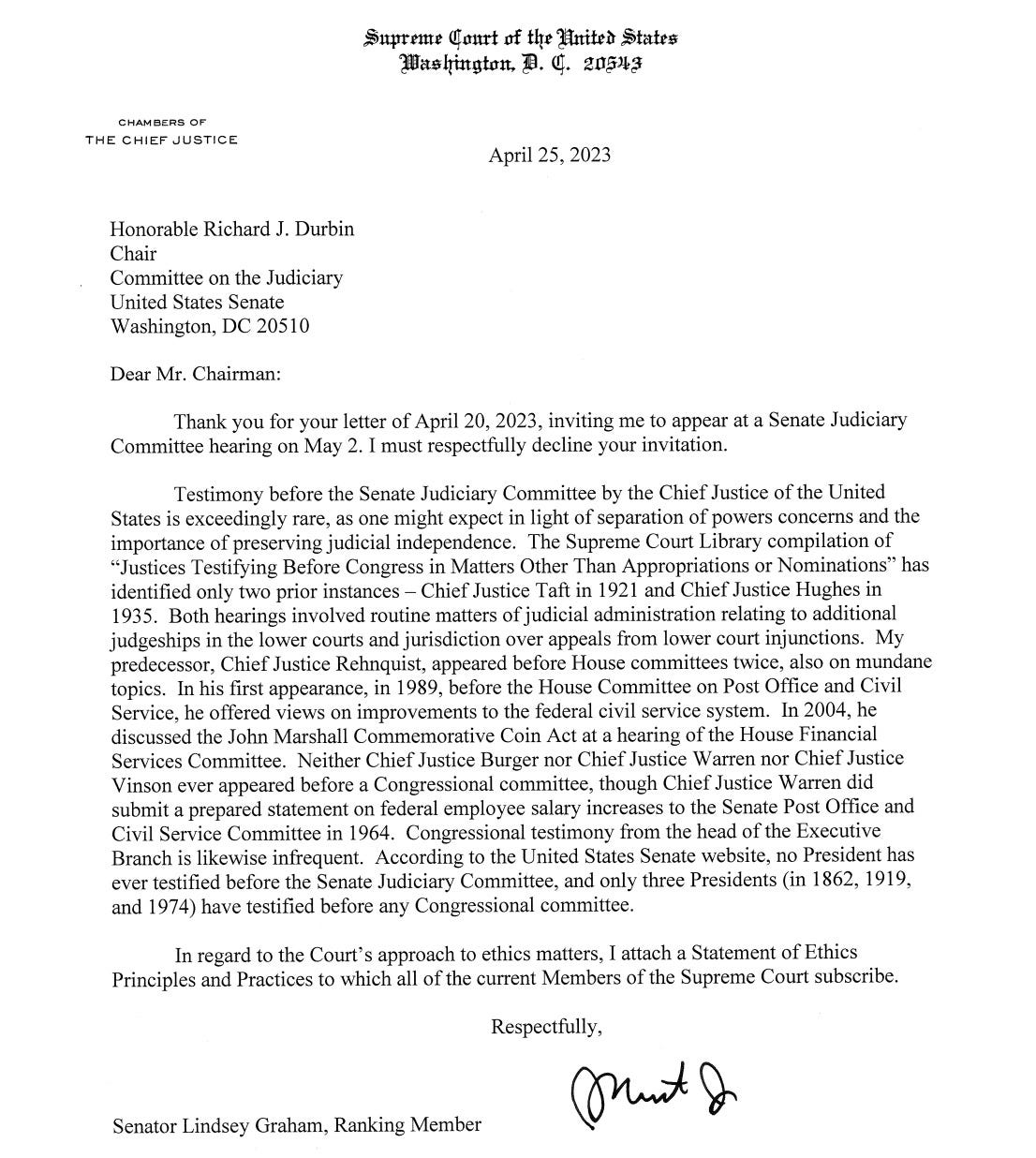

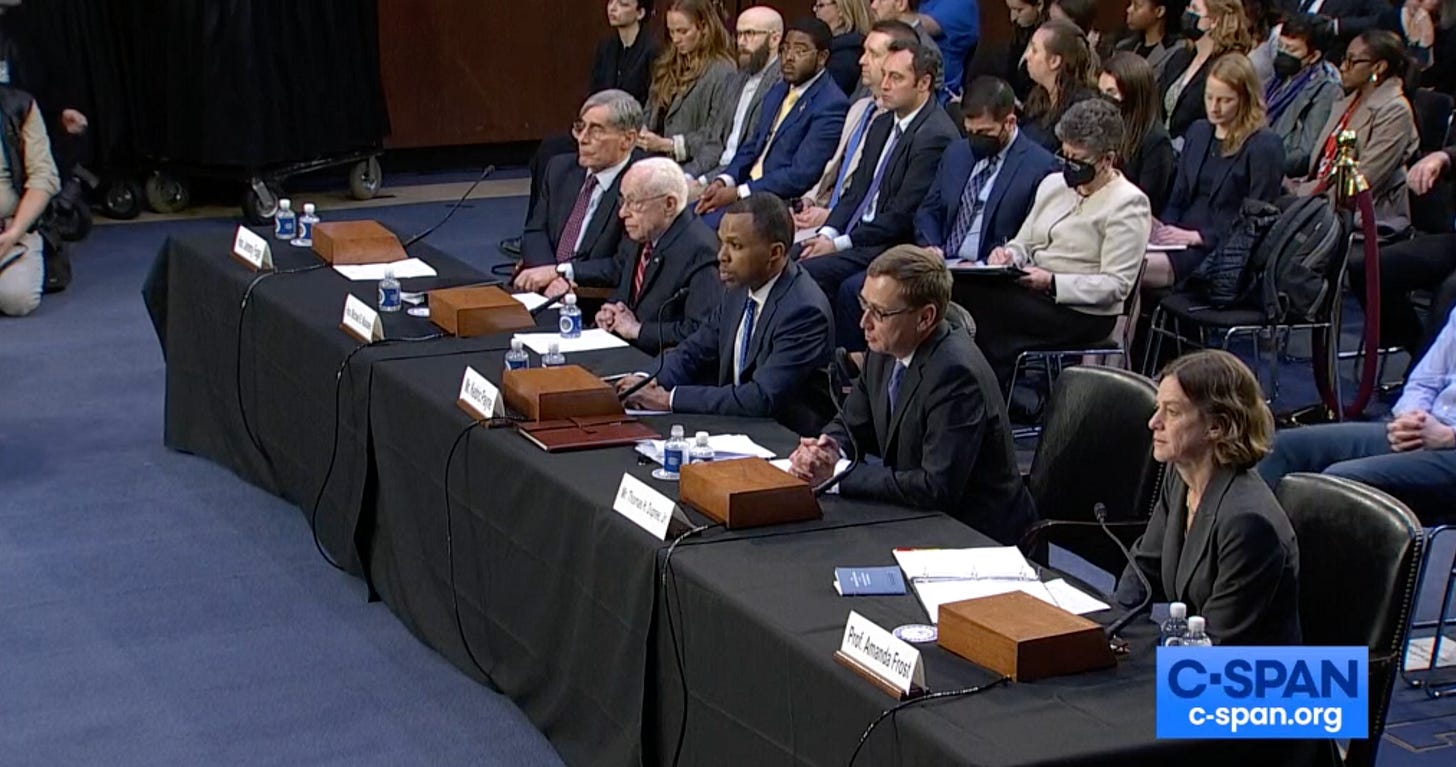
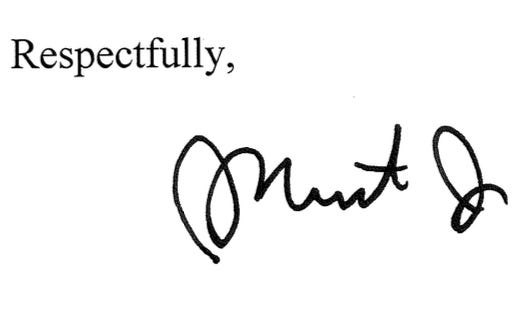
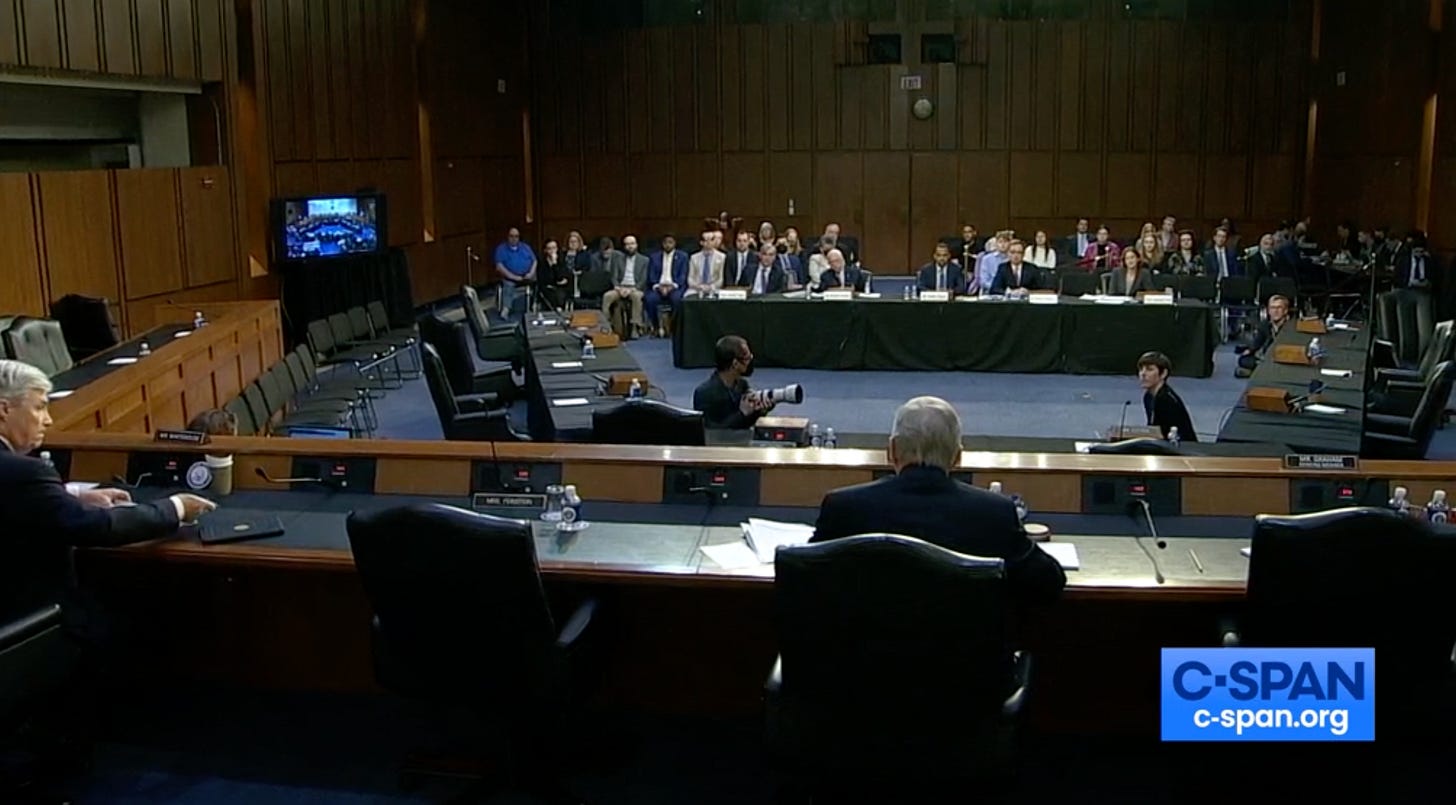
Thanks for taking the time to shed light on this distinction. I suspect I won’t hear about it very many other places, if any.
Durbin continues the 7-year pretense that all is well, with a few disturbances that are quickly swept under the carpet.
Continuing to pretend that the GOP is not a hardened extremist cult that must be defeated to save our country is both foolish and shortsighted.
We are not a polarized country. We are a faltering democracy with an ascendant autocracy, fueled by right-wing donors, who have fully captured the Court.
Denial and gaslighting won't save our future.